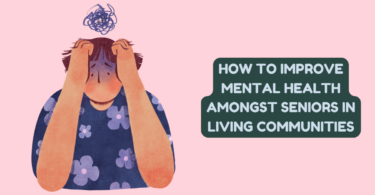
Detrimental Effects of a Restless Night
Sleep, a vital aspect of life, is essential for good health and wellbeing. Unfortunately, many people nowadays have trouble getting adequate sleep due to a variety of factors, including work obligations, stress, lifestyle decisions, or health issues.
Sleep deprivation is a growing problem that has serious consequences for society as a whole as well as bad personal effects on individuals. When a person continuously falls short of getting the required amount of sleep needed for optimal functioning, it is referred to as sleep deprivation.
Although each person’s needs are different, most adults require 7 to 9 hours of unbroken sleep each night. When this suggested amount is repeatedly cut short or disturbed, chronic sleep deficiency results..
Symptoms of Sleep Deprivation
Daytime sleepiness and fatigue. One of the most typical signs of sleep deprivation is having extreme fatigue and having trouble staying awake during the day. This may affect a person’s ability to work efficiently, focus, and think clearly overall.
Mood Disturbances. Lack of sleep can cause irritation, mood fluctuations, elevated stress levels, and an overall decline in emotional health. Additionally, it may make anxiety and depressive symptoms worse.
Cognitive Impairment. Cognitive processes like memory, attention, problem-solving, and decision-making are significantly impacted by sleep loss. It hinders the brain’s ability to effectively digest information.
Weakened Immune System. Regular sleep deprivation impairs the immune system, increasing a person’s susceptibility to infections, diseases, and drawn-out recovery times.
Weight Gain and Metabolic Issues. Lack of sleep disturbs the body’s hormonal balance, increasing appetite and food cravings as well as the chance of developing metabolic diseases including obesity and diabetes.
Causes of Sleep Deprivation:
Lifestyle Choices. Late-night activities, excessive screen time, erratic sleep patterns, and putting social or professional obligations before sleep are all common features of modern lifestyles. Chronic sleep loss may be exacerbated by these circumstances.
Sleep Disorders. Sleep patterns can be disturbed and people may not get enough restorative sleep due to conditions like insomnia, sleep apnea, restless leg syndrome, and narcolepsy
Environmental Factors. Sleep quality and quantity can be affected by environmental variables such as noise, light pollution, unpleasant bedding, high temperatures, and others.
Stress and Anxiety. Sleep deprivation is a result of chronic stress and anxiety, which can make it difficult to fall asleep or stay asleep.
Medical Conditions. Sleep disturbances and sleep deprivation can be brought on by a number of medical illnesses, including chronic pain, digestive problems, respiratory problems, and hormone abnormalities.
The Impact on Physical Health
Our physical health suffers from sleep loss in a number of ways. The immune system is weakened by insufficient sleep, making people more prone to diseases and infections. It throws off the body’s hormonal balance, which causes an increase in appetite, weight gain, and a higher risk of contracting long-term illnesses like obesity, diabetes, and cardiovascular diseases. Lack of sleep also affects motor coordination and skills, which impairs cognitive function and raises the risk of accidents.
Cognitive Impairment and Mental Well-being
Lack of sleep has a significant impact on cognitive performance. The development of memories, learning, and general cognitive function all depend on sleep. People have trouble concentrating, thinking clearly, and making decisions when they don’t get enough sleep.
Additionally, extended sleep deprivation has been connected to a higher risk of mental health conditions like sadness, anxiety, and mood swings. As sleep problems frequently worsen pre-existing mental health disorders and vice versa, the relationship between sleep and mental health is reciprocal.
Impact on Productivity and Performance:
Lack of sleep seriously reduces performance and productivity in a variety of areas of life. Employees who are very fatigued at work have trouble focusing, are less creative, and commit more mistakes, all of which lower production and efficiency. Additionally, those who lack sleep struggle in the classroom, struggling to remember material, do well on exams, and reach their full potential. Sleep deprivation also has an influence on society as a whole because it has been connected to mistakes and accidents in sectors like transportation and healthcare, endangering everyone’s safety.
Social and Relationship Consequences
In addition to negatively affecting an individual, sleep deprivation also has a significant negative effect on their social interactions and relationships. Relationships with family, friends, and coworkers might suffer from the common symptoms of inadequate sleep, including irritability, mood fluctuations, and impaired emotional regulation. Lack of sleep can affect cognitive function, which can impede efficient communication and undermine social connections, resulting in feelings of loneliness and seclusion.
Tips for Promoting Quality Sleep
Given how important getting enough sleep is, it is imperative to give it top priority. The following advice will help you get a good night’s rest:
Create a regular sleep pattern by deciding on a regular bedtime and wake-up time to manage your body’s internal clock.
Make your bedroom cold, dark, quiet, and distraction-free to create a sleep-friendly environment.
Create a calming nighttime routine: To help your body slow down, try things like reading, having a warm bath, or practicing relaxation methods.
Before going to bed, try to avoid using electronics because of the blue light they create, which might interfere with sleep. At least an hour before going to bed, avoid using electronics.
Keep a healthy lifestyle: Regular exercise, a balanced diet, and stress management all lead to greater health.
Conclusion
The widespread problem of sleep deprivation has serious effects on both physical and mental health. In order to prioritize healthy sleep and develop good sleep habits, people must be able to identify the signs and causes of sleep deprivation. The benefits of getting enough sleep go beyond only physical renewal; they also improve mental clarity, emotional stability, and general quality of life. We may improve our health, productivity, and general well-being by placing a high value on sleep and making it a priority.






